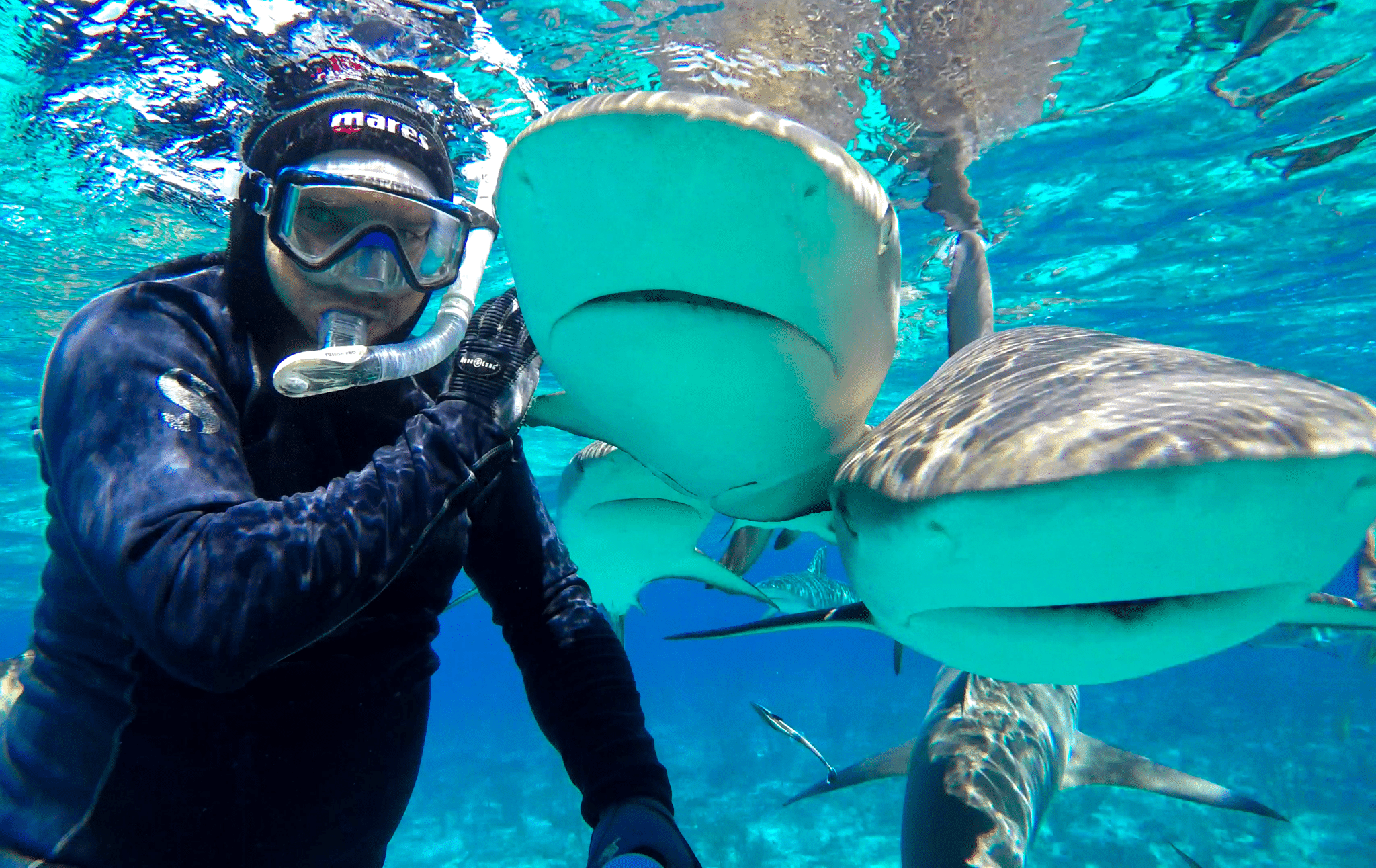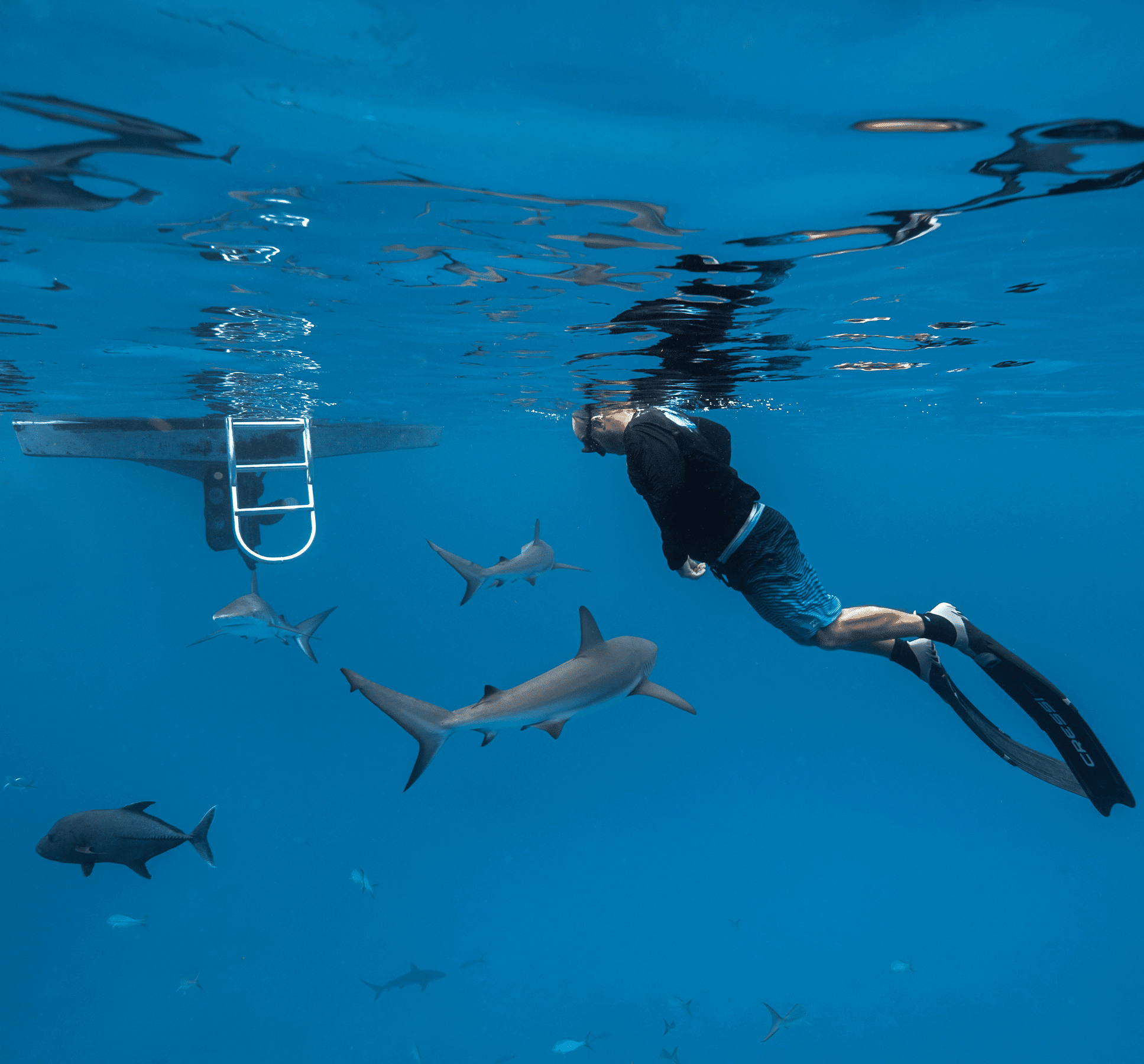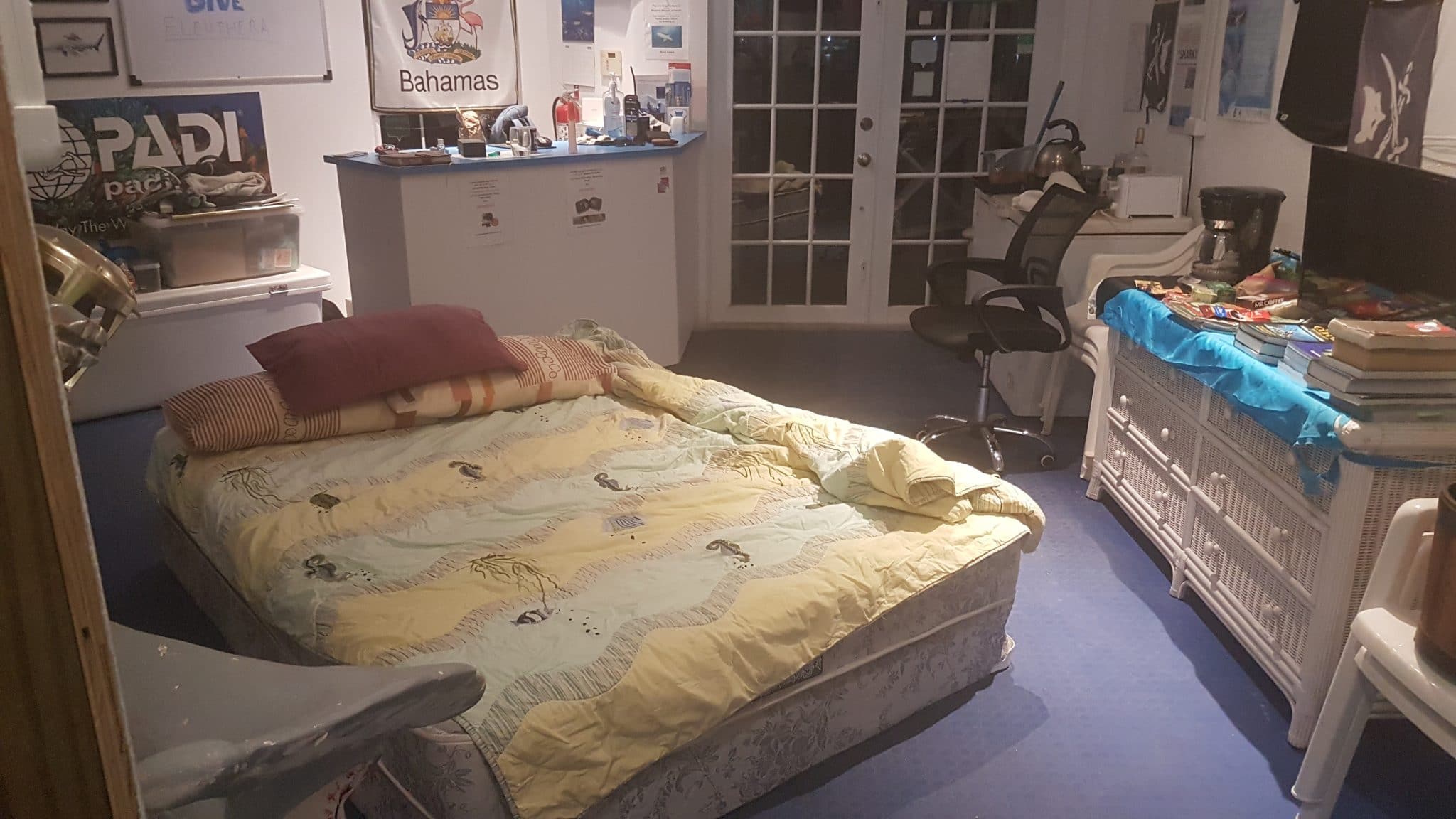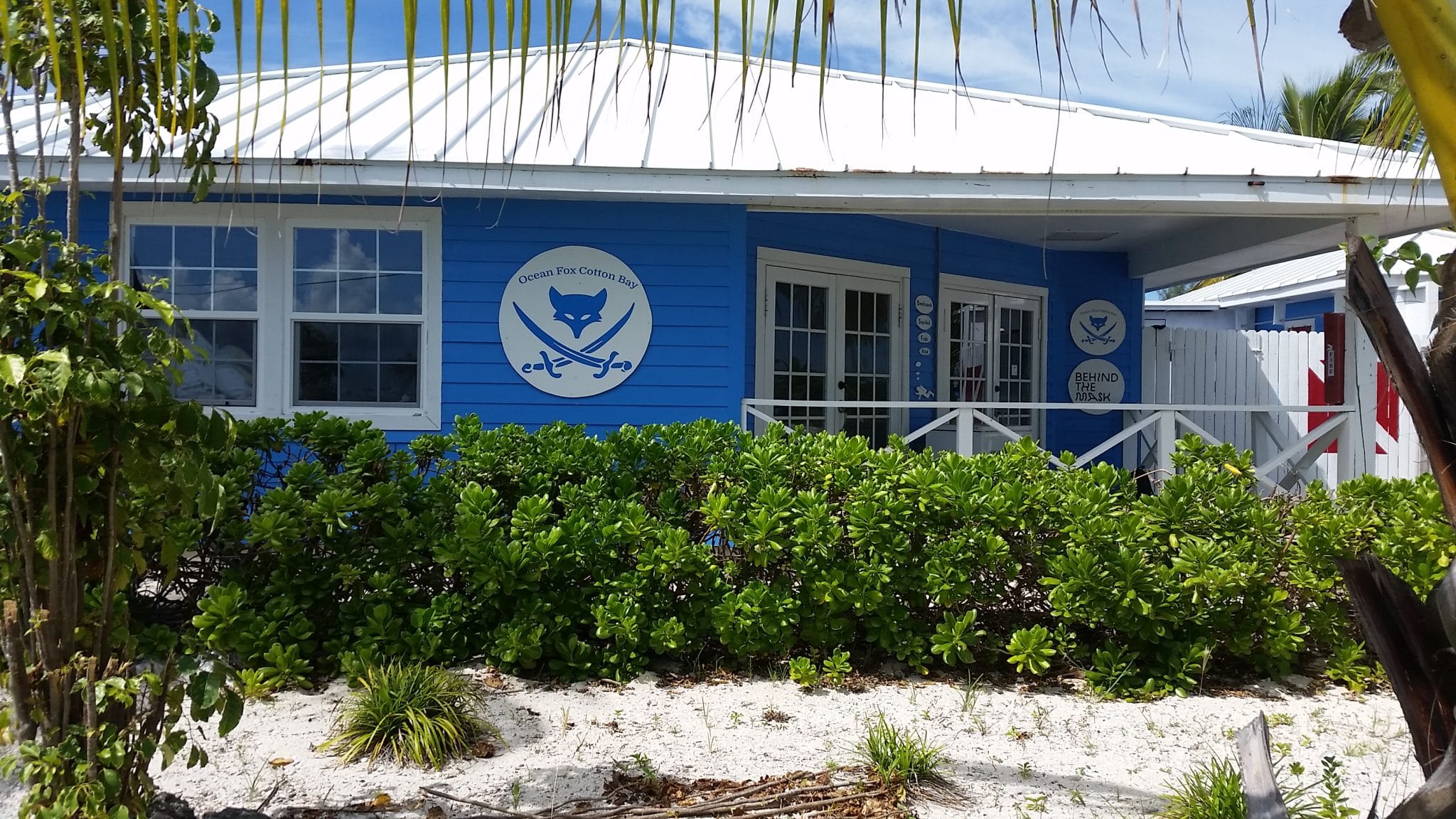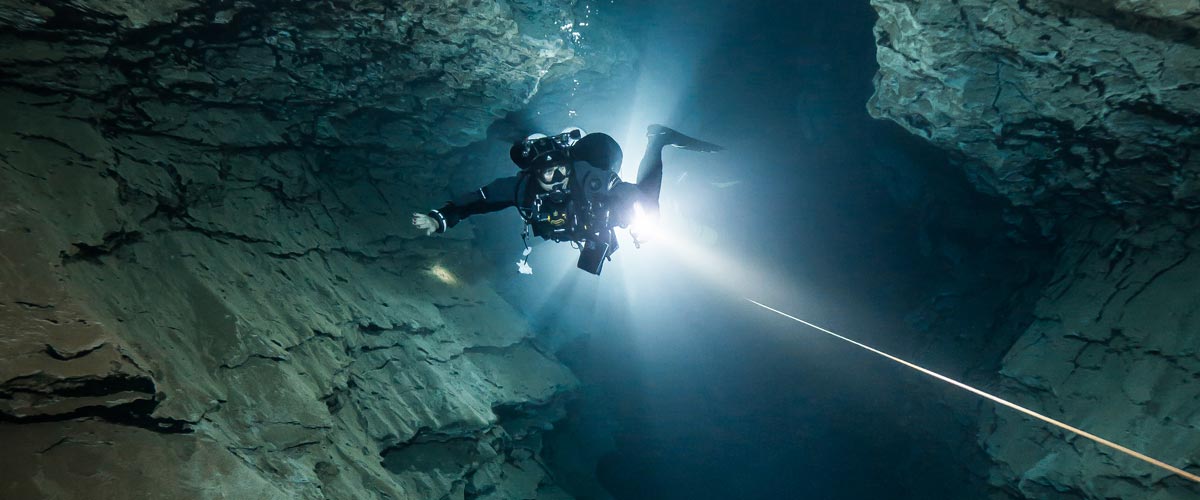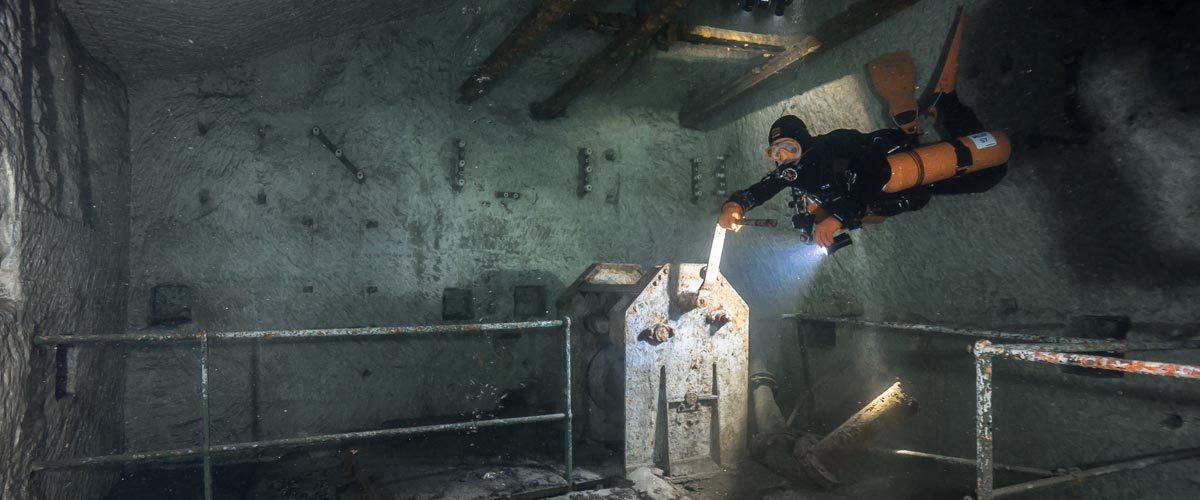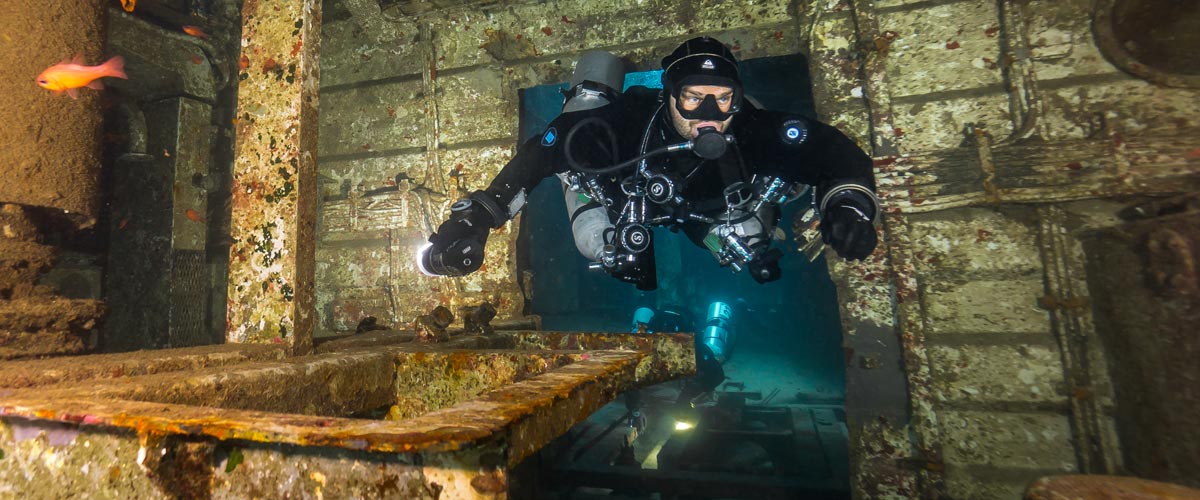Dive Training Blogs
Diving into the Gift of Choice
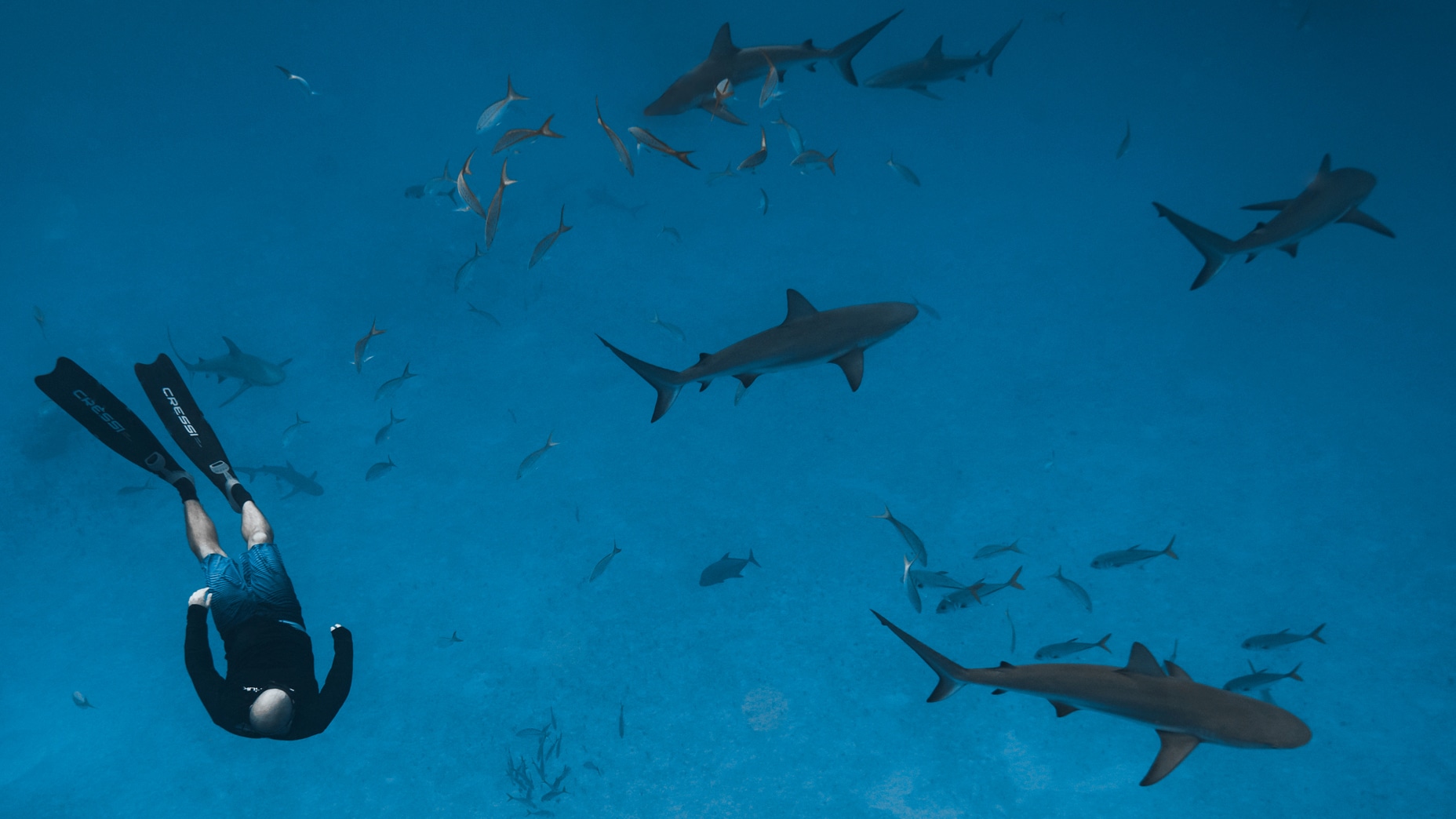
A guest blog by Chad Sinden
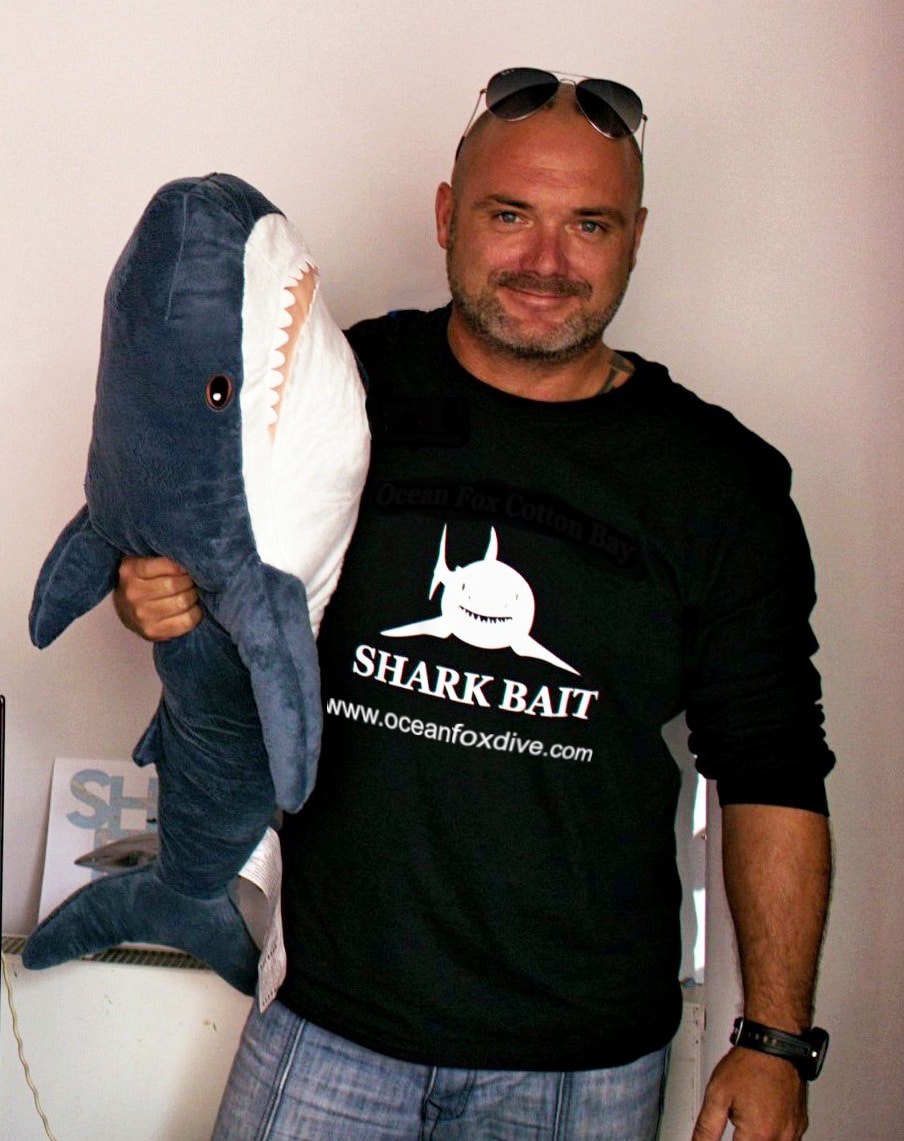 Chad Sinden is a PADI Master Scuba Diver Instructor™ and owner of Ocean Fox Dive Centre, a PADI ® Dive Centre in The Bahamas. His journey to becoming a diving professional has been anything but easy, yet despite all odds he continues to choose to dive-in to seek adventure and save the ocean every single day. Here is his story.
Chad Sinden is a PADI Master Scuba Diver Instructor™ and owner of Ocean Fox Dive Centre, a PADI ® Dive Centre in The Bahamas. His journey to becoming a diving professional has been anything but easy, yet despite all odds he continues to choose to dive-in to seek adventure and save the ocean every single day. Here is his story.
“My mission is to inspire others to feel good about themselves regardless of their challenges and to fall in love with the ocean. An ocean full of magic and wonder. If I can inspire just one person with my own challenges and failings, then I have succeeded.”
While I have been a PADI Open Water Dive Instructor since 2009, a PADI Master Scuba Diver Trainer since 2019 and the proud new owner of the PADI Dive Centre Ocean Fox Dive Centre, I wasn’t born loving the ocean.
I’ve been lucky enough to introduce a wide range of people to the beautiful underwater world. Regardless of age or ability, my goal is always the same with my diving students—to teach them to love the ocean and encourage them to explore and protect it. I am a firm believer that there truly is nothing more magical than the planet we live on and the contributions you as an individual make to it.
My love for sharks and the underwater world, that I am blessed to explore as a diver, arose from a time in my life where the world held no magic, wonder or mystery above the surface.
In fact, my journey to get to this point has been anything but magical. But my challenges and choices have led me to find sanctity at sea.
Learning to Love the Water, and Myself
I was born with a rare medical condition called ‘Poland Syndrome’, which left me without my right-side pectoral muscle or lateral muscle, made my right hand smaller than the left and gave me webbed fingers on my right hand. My medical condition also left me with severe depression, anxiety and a lack of confidence for most of my young adult life.
I also grew up with a fear of water. I nearly drowned three times before I was 16 and didn’t learn to actually swim until I was 25. And getting in the water with sharks? No thanks!
At the age of 11 my family moved to Australia. While we were surrounded by the New South Wales oasis of green valleys, I remained scared of the ocean and life there was anything but easy. We were illegal immigrants and were very poor. We first lived in a 30-foot-long caravan before moving into a small house that didn’t even have a real toilet. But looking back I realise this prepared me to deal with less than ideal living conditions in years to come.
When I moved back to the UK as a young adult, I got run over by a drunk driver and was left with severe brain swelling, amnesia and post-traumatic stress that took me three years to recover from.
But my time at hospitals also led to my journey as a PADI Professional. It was at a hospital in Northhampton that I did my first PADI Discover Scuba Diving experience. Shortly after I went on to become a PADI Open Water Diver at Stoney Cave near Leicester. My instructor on that course inspired me to start my own journey to become a PADI Open Water Instructor. I had discovered a whole new world beneath the surface and had fallen in love with the ocean.
The ocean and all its inhabitants accepted me without question. I found home. I found peace. All the struggles I went through did not define me underwater.
A World of Underwater Adventure
Soon after diving into a life underwater, I discovered my passion for megafauna.
I remember the first moment a huge shark glided past me and looked me straight in the eyes. At first, I felt completely powerless and all I could do was stare back. But then that transformed into a beautiful moment of mutual curiosity and respect. A moment of connection between two species who realise they don’t want to harm each other. It is a moment that I will remember forever and I never felt more alive.
I eventually quit my full-time career as an electromechanical engineer to pursue ocean conservation. This led me to the beautiful Fiji Islands, where I volunteered for four years teaching reef conservation and scuba diving to international volunteers and indigenous locals. I was also there in 2016 when the devastating Category 5 Cyclone Winston devastated the island nation. But I will never forget the hospitality and kindness that was given to me by people there who lost everything. They taught me a valuable lesson in hope and kindness.
After continuing to work for many dive centres around the world, I found myself in the Bahamas in 2018. I invested my small life savings into 10% of a dive centre on the beautiful island of Eleuthera in the Bahamas. It was the biggest financial risk I had ever taken.
Finding Shelter and Hope in a Dive Centre
After two years of working at this dive centre, and for reasons beyond my control, the relationship with the other owner had taken a turn for the worse and I was looking for ways to get out of my partial ownership.
At the same time, the global pandemic upended the dive industry and my livelihood. Tourism was shut down in the Bahamas and we entered one of the strictest lockdowns in the world. From Monday to Friday each week we were not allowed to leave the house, not even for food or medical care. The hospitals were simply over run on and the beautiful beaches we were surrounded by were now off limits.
After five months of zero income, a depleted savings account and a maxed-out credit card, I had to give up the small house I was renting and moved into my trusty 22 yr. old Toyota Rav4. It then dawned on me that the dive centre I used to work at was empty. The company couldn’t close or function due to all facilities being shut down.
The wetsuit racks became my wardrobe. The retail floor of the shop became my bedroom. And the occasional crab would become my roommate while the crickets sang to me all through the night. I lived off generosity of friends family and locals. And I reminded myself how lucky I was in comparison to those who suffer worse than me.
But I would still cry myself to sleep wondering if I would ever see my family again. I wondered how on earth I would pull through. I hit rock bottom, but reminded myself that I don’t go down without a fight, ever.
I began to formulate a plan to borrow money to buy the remaining assets of the dive centre. Since the banks were not lending, I made a list of every person and company I knew of affluence who I had met over my career that could be in a financial position to help me. I created a business plan for the dive centre and pitched it to everyone on the list. I expected zero response, but to my surprise I had three offers within a month! People recognised the importance of continuing shark interaction training and, more importantly, the excellent professional reputation I had attained from years in the industry.
But the hard times weren’t quite over yet. I managed to return to the UK after eight months of solitude, only to be put through another four-month lockdown with my family. In total, I had now spent more than 12 months without a single paycheck. But hope in my dive centre kept me going.
Diving into New Opportunities
I eventually returned to the Bahamas and reopened the dive centre in March this year. Things were slow at first. I found myself having to apologise to guests as they entered the dive shop and saw my bed leaning up against the wall and my clothes next to the wetsuits and a gas cooker in the corner. But my guests were very understanding. In fact, the tips this year have been the best ever!
Miraculously, we have had a successful season this year despite all the uncertainty and are looking forward to next year being one of our best years ever!
I’ve moved out of the dive centre and into a new home. The bills are paid. The dive centre has teamed up with the beautiful Cape Eleuthera Resort and Marina and are looking forward to becoming a PADI 5 Star Resort and Dive Centre very soon.
Since taking over this dive centre, life has been on the up for both myself personally and professionally. After a whole year out of the water, I am now back diving with my favorite animals on the planet—sharks—and teaching others to love these beautiful creatures as well.
From humble beginnings I am now the proud owner of Ocean Fox Dive Centre in the Bahamas. I am a PADI Master Scuba Diver Instructor who gets to introduce people of all ages and abilities to the magic that lies beneath the surface of the ocean. I get to dive with sharks and be inspired by them every single day.
Life is about choices. What choices will you make today?
For more information about the Ocean Fox Dive Center visit their website by clicking here.
Blogs
Intro to Tech: What is it about?
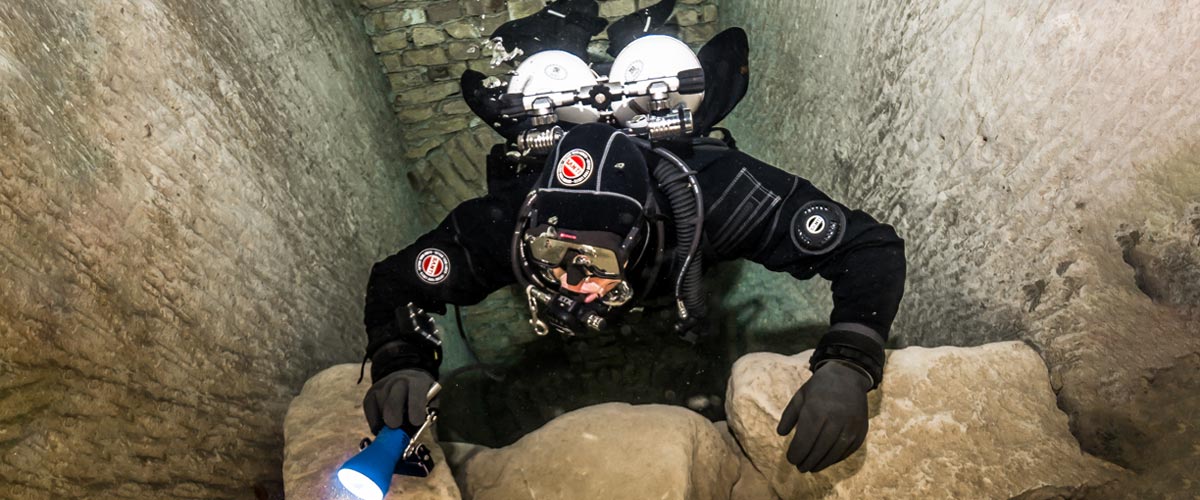
Article by José Pablo Mir
Pictures by Cezary Abramowski
The world of technical diving is exciting. It opens the door to new sites, depths, and bottom times. More importantly, it opens our minds to a new way of planning, facing, and experiencing dives, even those not purely technical.
Becoming a technical diver is a process, and like in other aspects of life, we should find the proper entry point that suits us best based on our knowledge and experience. The Introduction to Technical Diving course from TDI -the world’s largest and most recognized technical diving teaching organization- is the best option for divers who have yet to gain experience in the fundamental aspects of this new practice. The course’s content and its embrace of new techniques and technologies make it possible to acquire a solid foundation to learn and gain experience in this practice properly.
Becoming a technical diver is not something that happens overnight, whether deciding to become one or receiving a certification card stating we are now technical divers. It is a slow process extending farther away than any introductory course. It requires effort and dedication. But it will bring us satisfaction from day one -or two.
It is a matter of mentality
First, we must understand and accept that technical diving, involving greater depths, longer bottom times, exotic gases, virtual or real ceilings, and more, comes with higher levels of risk than the sport diving we have been practicing until now.
Although this discussion usually starts with a warning about risks, as I’ve done in the previous sentence, our practice is not a game of chance.
Technical diving is a rational activity that requires maturity and good judgment, and we will put everything into ensuring that each dive is a successful one -meaning we return from it safe and sound. With this understanding, we will strive to establish a mental attitude more aligned with our practice and its realities.
This new “technical diver” mindset we will develop will lead us to be more cautious in our executions, more analytical in our plans, more rational in our strategies, and more detailed in our procedures.
Experience will keep teaching us to know ourselves better, to keep our anxiety and other emotions under control, and to manage our impulses. Over time, our senses will sharpen, and we will be more attentive to the particulars of the situation we find ourselves in.
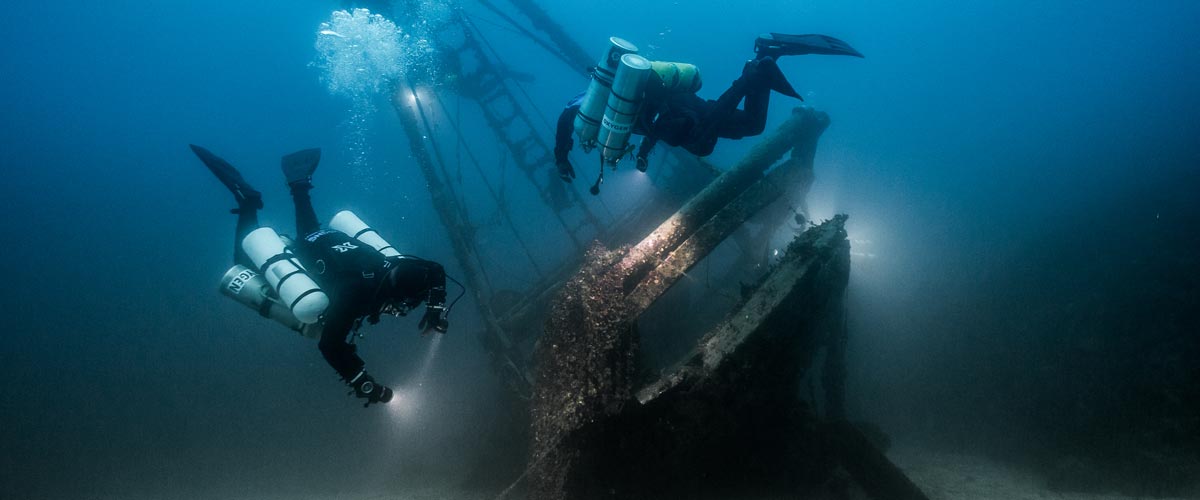
Strategies and procedures
Our strategies, those broad guiding lines tracing the path to follow, from how to approach planning to where, with what, and how we are willing to get there, will be more specific and more practical. Not because they magically become so, but because we will consciously and deliberately frame them that way.
We will establish clear, concise, and realistic procedures. Not only for the undesirable situations that may present themselves but also for those that are part of our dive objectives.
Even though, as technical divers, we often use equipment different from what we were previously accustomed to, it is essential to note that the gear does not make the diver. In a way, we could consider such equipment as the necessary tools to implement what our goal seeks to achieve, according to our strategies and procedures.
Technique plays an important role
We must put our greatest effort into learning and perfecting the different techniques we will be acquiring. Buoyancy, trim, propulsion, cylinder handling, deploying DSMBs and lift bags, valve drills, and more are essential skills we must begin to master to progress in our art. What we cannot do, when we need to do it, can harm us.
Our techniques must be effective and achieve the purpose for which they were devised. But they must also be efficient and require the least resources possible, including the time they take and the effort they demand. Effectiveness and efficiency will prevail over beauty and other considerations that may come to mind, although none of them should be mutually exclusive. A technique executed efficiently and effectively tends to have an inherent beauty.
Refining techniques is a lifelong mission. Some of them will be easy to master from the go; others, on the other hand, will be our life mission and will require many repetitions just to resemble the idea we have in mind of how they should be executed.
We must consider the environment
Our learning, the needs and musts of the practice we engage in, the experience we gradually gain, our strategies and procedures, and even our equipment and tools change with the environment.
Diving in the ocean, everything about us must be suitable for ocean dives. Conditions there rarely emulate those found in a pool, lake, or river. Variable winds and currents, greater depths, visibility conditions, other divers with uncertain skills around us, marine life, maritime traffic, distance from the coast, and many other factors add complexity and uncertainty.
It is never necessary to master the pool on the first day, but planning and aspiring to gradually cope with the ocean’s conditions is essential.
The cost of good training
We are aware that our resources are often scarce in relation to the possibilities of use we could give them if they were not. To a greater or lesser extent, we are part of the economic reality in which we are embedded.
Fortunately, the cost of good technical diver training is not an entry barrier. Comparing training and equipment costs, we see that the former are generally lower. Yes, lower cost for personalized service, essential to our future
performance and safety, than for a series of mass-produced products that are mere, albeit necessary, tools for an end.
The value of good training
The value of the training we received encompasses a range of characteristics, from emotional and methodological to technical and technological. TDI and its Introduction to Technical Diving course offer a deep and modern approach, with a teaching strategy that aims to create thinking divers, not merely obedient ones.
As technical divers, our knowledge is our primary tool. In this type of activity, what we don’t know can harm us.
Is this course optional?
Unfortunately, the fact that this Introduction to Technical Diving course is not a prerequisite for any subsequent training is an invitation to consider it optional. And we all know what usually happens to “optional” under budget constraints.
However, this course should be seen as optional only by those divers who are somehow familiar with the use of technical equipment, who have a mindset more in line with the requirements of this type of diving, who plan and execute the dives the proper “technical” way, who know their gas consumption rate, who are not intimidated by non-decompression tables, who feel comfortable using their dive computers, and know the techniques and have at least an acceptable level of buoyancy, positioning, and propulsion. Those can go straight to a more advanced training course, such as TDI’s Advanced Nitrox.
We must ask ourselves whether or not we are in that group.
Remember our goal: to have fun
Recreational diving is our passion. Jumping into the water carrying heavy equipment and having properly dotted our I’s and crossed our T’s have only one ultimate goal: fun. This is the activity we have chosen as a hobby. We must enjoy it; it must give us pleasure and make us vibrate.
Having a good time is not optional!
Blogs
Four opportunities to go pro in 2024 with Dive Friends Bonaire
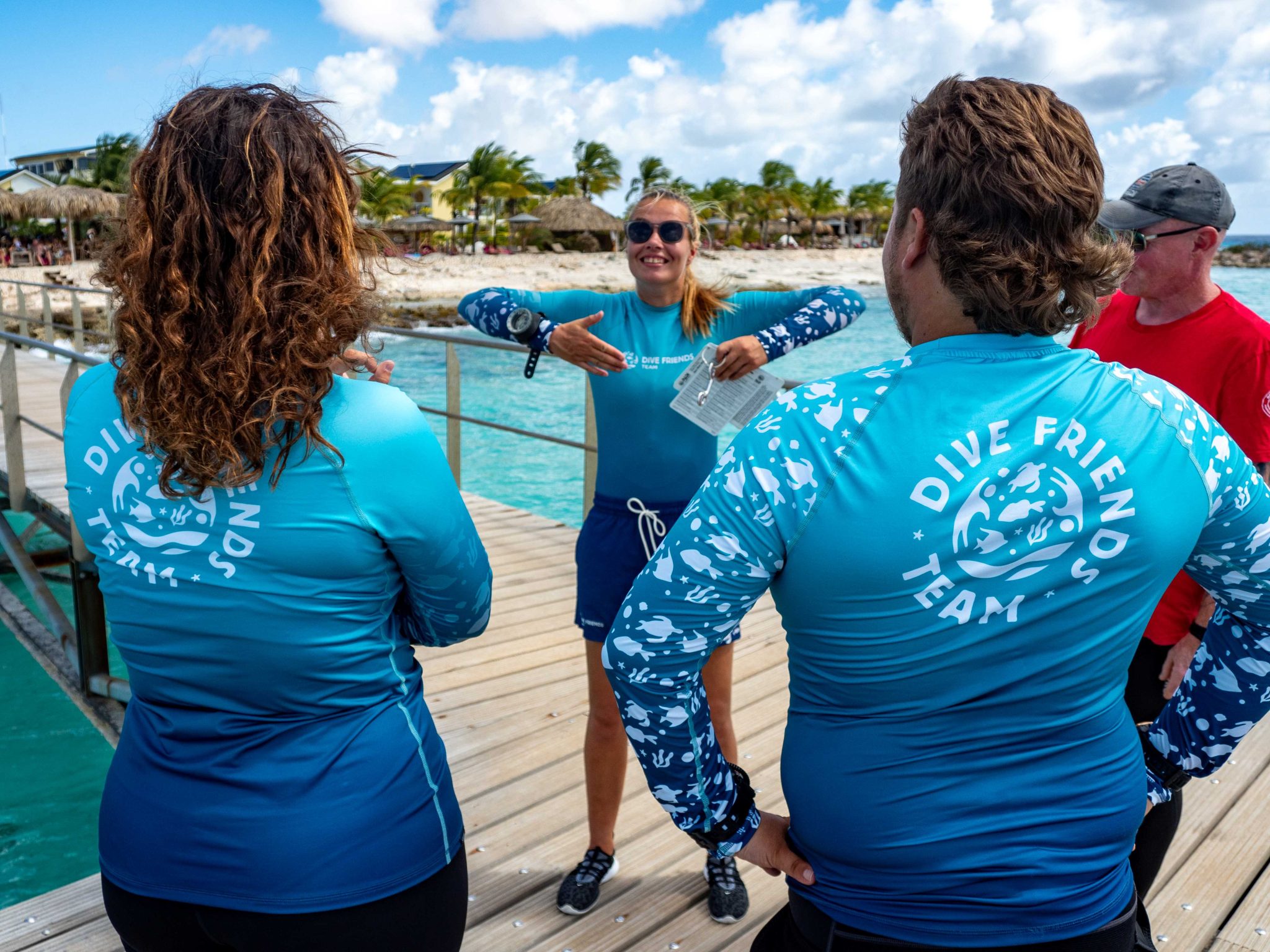
Dive Friends teaches the Instructor Development Course (IDC) several times a year to students who are eager to share their passion for diving with the world.
Dive Friends is known for the personal approach throughout the course. Their in-house course director will lead the students through every essential step, mentoring them to achieve their fullest potential as a dive instructor.
Applications for the following IDC start dates are now open:
- 12 April
- 5 July,
- 20 September
- 29 November
Partnership with Casita Palma
If the student opts for the IDC-Deluxe or IDC-Supreme package, their accommodation will be arranged for them at Casita Palma. This small and quiet resort is within walking distance from Dive Friends Bonaire’s main dive shop location and has everything you need to relax after an intense day of IDC training. Breakfast is included, so the student will always be fuelled and ready for their day.
Contact Dive Friends Bonaire’s Course Director Eddy for more information: coursedirector@divefriendsbonaire.com.
-

 News3 months ago
News3 months agoHone your underwater photography skills with Alphamarine Photography at Red Sea Diving Safari in March
-

 News3 months ago
News3 months agoCapturing Critters in Lembeh Underwater Photography Workshop 2024: Event Roundup
-

 Marine Life & Conservation Blogs3 months ago
Marine Life & Conservation Blogs3 months agoCreature Feature: Swell Sharks
-

 Blogs2 months ago
Blogs2 months agoMurex Resorts: Passport to Paradise!
-

 Blogs2 months ago
Blogs2 months agoDiver Discovering Whale Skeletons Beneath Ice Judged World’s Best Underwater Photograph
-

 Gear Reviews2 weeks ago
Gear Reviews2 weeks agoGEAR REVIEW – Revolutionising Diving Comfort: The Sharkskin T2 Chillproof Suit
-

 Marine Life & Conservation2 months ago
Marine Life & Conservation2 months agoSave the Manatee Club launches brand new webcams at Silver Springs State Park, Florida
-

 Gear Reviews3 months ago
Gear Reviews3 months agoGear Review: Oceanic+ Dive Housing for iPhone


